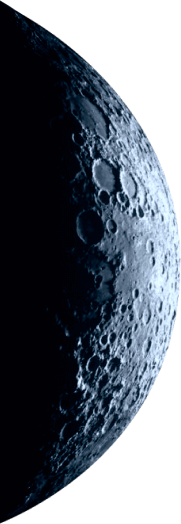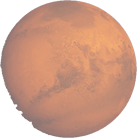

Europe’s new Ariane 6 and Vega C launch vehicles will be lifting off next year from the Guiana Space Centre, Europe’s Spaceport in French Guiana (South America). The culmination of these major projects reflects the dynamic performance of our space sector and opens a new chapter in the European launcher epic. Ariane is a unique adventure. Since the first mission in December 1979, Ariane launchers have lifted off 247 times, orbiting 445 satellites. In the future, Ariane will continue to be built jointly by 13 European countries, with France, Germany and Italy as primary contributors. Vega, the light-lift vehicle in Europe’s launcher family, added a new chapter to this impressive story when it began operating in 2012. Since then, Vega has launched flawlessly 14 times, orbiting 28 satellites.
The future will bring a radically growing demand for (if not dependence on) space-based services. The rapidly growing world population and intensifying mobility of persons, the new technologies such as blockchain and artificial intelligence, the challenges driven by continuing global warming, the global elimination of the digital divide and the worldwide penetration of the Internet of Things will lead to increased demand for access to space. As a pre-requisite, Europe must imperatively master reliable, cost effective and responsive access to space. Europe benefits from a very robust heritage on which to build its future, but to do so it needs to transform itself and accelerate the pace.
In just a few days, Europeans will elect their parliamentary representatives, choosing what kind of Europe they want over the next five years: an audacious, innovative Europe; or a stagnant Europe, which has abandoned its ambitions and all that has been built up over the years. The space industry is a model for a Europe that dares – and history has proven us right.
Well before the European Union adopted a space policy with the Treaty of Lisbon in 2007, multiple European countries teamed up through the European Space Agency (ESA) to guarantee independent access to space. Their determination materialized as early as 1975 with the Ariane launcher programme, followed 30 years later by Vega. Through Arianespace Europe has logged important successes by achieving worldwide market leadership in commercial launch orders from the leading satellite operators, while also providing launch services for Europe’s own missions for telecommunications, Earth observation, science and navigation applications. Europe’s ability and independence in space access has favoured the growth of competencies in all space activity segments from manufacturing to services. Launch capability is a key enabler for all these developments.
These launchers symbolize our ability to jointly develop innovative solutions that make Europe a leader in international markets. They also have fostered the development of a major space industry that now supports more than 40,000* direct jobs with highly qualified employees. If we are to continue this excellent European adventure, some ambitious decisions will need to be made. Our space industry model is being challenged by the ambitions of the United States and China, which can count on civil and military budgets that grow larger and larger to capitalize on a space market that is expected to triple in the next 20 years.
We therefore are calling on future members of the European parliament (MEPs) who will have to approve Europe’s space budget for the coming decade, and on ESA Member States (who will be meeting in Seville at the end of the year) to decide the roadmap for the Ariane and Vega rockets. Together, let’s continue to commit ourselves to independent European access to space, and remain pioneers in the conquest of space!
Space will play a key role in meeting the challenges that lie ahead in the 21st century. We can count on scientific satellites and crewed flights to help us better understand our solar system and the universe; on operational satellites that connect people and reduce the digital divide; on spacecraft that ensure our security by taking high-resolution images and providing secure communications; and on other satellites that make a decisive contribution to the future of our planet by supporting climate studies, the monitoring of natural disasters, sustainable agriculture and much more.
Only a united and cohesive Europe has the critical mass needed to address the challenges facing the European space sector. Galileo allows us to benefit from the world’s most advanced satellite positioning system, and the European Commission’s Copernicus programme is the world’s largest supplier of Earth observation data. Let’s continue to use space to make life better on Earth and ensure that our ecosystem thrives by associating a “Buy European Act” with ambitious new programmes designed to support connectivity, security and the fight against climate change. At the same time, Europe must continue to inspire people; just imagine the emotional impact on huge numbers of people if a European astronaut were to lift off from the Guiana Space Centre!
Launch vehicles increasingly need innovative technologies if they are to stay in the race, such as lighter-weight materials to increase performance, designs for low-cost propulsion systems, and – of course – the ability to reuse elements of a rocket if justified by the number of launches. Starting this year, we must mobilize the funds required to ensure the success of Ariane 6 and Vega C, while also preparing the next generation of launchers for introduction in the 2030 timeframe.
Finally, the industry must be able to organize itself more flexibly than it does today. To survive and prosper, our industries must succeed in today’s highly demanding export markets. Working together with the European countries and their space agencies, our wish is to foster the overall competitiveness of our launchers, by implementing new technological developments and, as lead contractors, putting in place an ever leaner, optimised organization with our industrial partners.
Space offers a great source of opportunities that we will seize by working together to make life better on Earth. Our vision of space is far from the “Wild West” space environment that some players seem to prefer. We want a sustainable space for a sustainable future on Earth. The European space industry we are building embodies a Europe united in diversity, a Europe that dares, and is ready to meet tomorrow’s challenges in a global environment. In short, it is the future that we want for space and for Europe.
Stéphane Israël, CEO Arianespace
André-Hubert Roussel, CEO ArianeGroup
Pierre Godart, CEO ArianeGroup GmbH
Giulio Ranzo, CEO Avio
* Source: ASD-Eurospace “The state of the European space industry in 2017”
The post Editorial: More than ever, Europe needs space appeared first on Arianespace.




